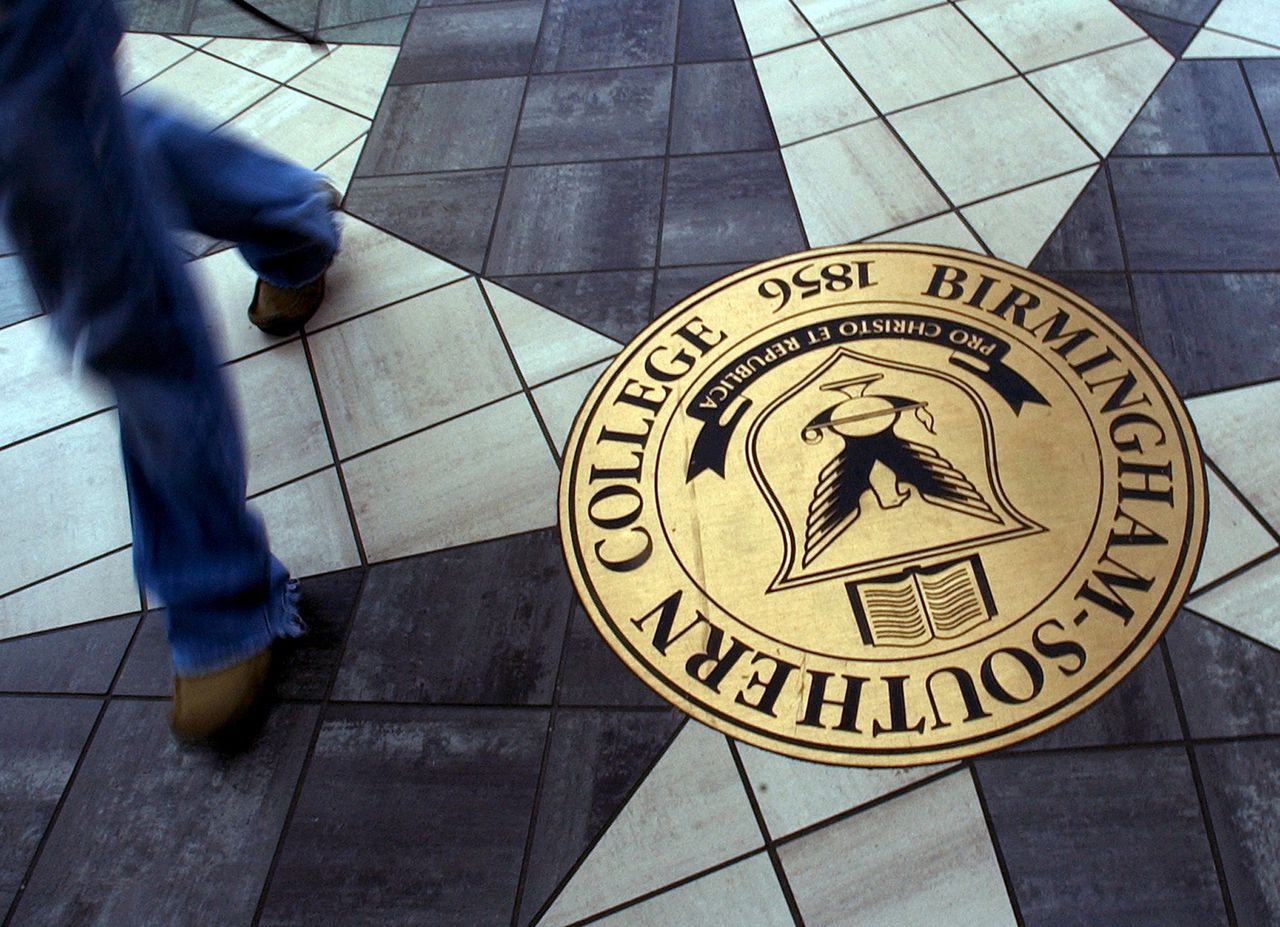Whitmire: Beneath college’s struggle is Birmingham’s decline
This is an opinion column.
At Birmingham-Southern College, I spent my share of time in the provost’s office, some of it even by choice.
Despite my best efforts to wreck my undergraduate career, Dr. Irvin Penfield, considered my future worth salvaging. And as the editor of the student paper, I frequently got called to his office to answer for the things we published.
But one day, late in 1999, I confronted the old man after class with a question my cohort had been raising hell about.
Why Richard Scrushy?
The college had chosen the then-HealthSouth CEO to give the commencement address at that year’s graduation, in addition to an honorary doctorate.
This was before federal investigators revealed the Birmingham-based healthcare company to have been the fourth-largest accounting fraud in history at the time, and years before the college hid the granite sign for its baseball facilities, “Scrushy-Striplin Field.”
However, Scrushy still wasn’t the sort of guiding voice most students or faculty wanted for the college’s parting words to seniors.
So why him?
Penfield’s head tilted back and his cheeks drew in as he took a breath and considered what he would say.
“Mr. Scrushy has given a lot of money to this college in the past,” he said. “And we hope he continues to do so in the future.”
PREVIOUS: After 20 years of decline, BSC struggles to find a way forward
It was the truth. And it was straightforward enough that I didn’t quite know then what to do with it. In one candid sentence, the provost had summed up the transactional relationship the college had with the donor class and how desperately dependent that institution was on men like Scrushy for its continued existence.
In addition to putting Scrushy’s name on the baseball field, the college had given him a seat on its swollen 70-member board of trustees. The latest “honor” seemed to be another part of an open-ended exchange.
It made me sick then.
But today I might feel worse.
Not because my alma mater made such a devil’s bargain, but because there are few bargains like it left to make.
Birmingham-Southern is on the rocks, not for the first time in its history. As BSC President Daniel Coleman told me last month, the college has nearly gone broke six times in the last 167 years.
But this time, there’s something different at play. And it’s not the college.
After BSC began soliciting $37 million in government support as part of its recovery plan, I’ve heard the question from readers, lawmakers and some colleagues.
It’s a private institution. Why can’t it raise that money from private sources?
The answer might be that there aren’t any. Or at least, not as many as there used to be.
Twenty-five years ago, if the college hit a rock in the road, then-president Neal Berte could call on the city’s corporate leaders to open their checkbooks. Today, there are fewer folks the current college president can turn to.
It’s easy to drive the streets of downtown and think this city has turned some sort of corner. Twenty-five years ago, your lunch options there were Pete’s Famous Hotdogs or Pete’s Famous Hotdogs.
Today, the storefronts are populated with so many bars and restaurants, breweries and coffee shops, you need help finding a parking place. Birmingham appears to be booming.
But look past the service industry success and you’ll see something else.
Birmingham’s corporate presence has been slowly withering.
When I was a student at Birmingham-Southern, there were five Fortune 500 companies in Birmingham.
Today there is one.
Some have shrunk or collapsed completely. Others have merged or have been gobbled up by out-of-state rivals. Others skipped town.
Birmingham’s skyline hasn’t changed since I moved here almost three decades ago, but today, one of those newer towers downtown is completely empty. Abandoned buildings have always been a fact of life in major cities, but how many have you seen that were 390 ft. tall?
No matter how much of that office space we convert into overpriced lofts, Birmingham is now the state’s second-largest city with no immediate prospects for taking back the top spot.
Wait … what’s that?
My editor reminds me, it’s now third, behind Montgomery, as of last year.
Swell.
Birmingham-Southern’s trouble is another symptom of Birmingham’s decline.
And if the college does go under, it will almost certainly be an accelerant.
Recruiting talent to work in Alabama isn’t an easy sell. Nor is keeping our homegrown talent here.
Colleges and universities are entry points into their communities for young professionals and Birmingham is on the verge of losing one of those points of entry.
Additionally, there’s a more immediate cost to Birmingham if the college fails — a 195-acre vacant lot in west Birmingham which, after a year or two of neglect, won’t be good for much more than a set for “The Last of Us” or the next inevitable spinoff of “The Walking Dead.”
I care about my alma mater, not because I went to school there, but for what it means to Birmingham. As goes one, so goes the other.
Both are worth saving, and I’m not ready to give either back to nature.
But already in the woods behind an old maintenance shed, the living world has accepted its first sacrifice, an old hunk of granite discarded there some years ago, where no one would likely see it again.
Nobody, that is, but me, when I went looking for it recently.
There, among the briars and vines, it looked almost like a tombstone in an abandoned cemetery waiting for the day when no one remembers the names carved on its face.
I’ll never forget.
Here lies “Scrushy-Striplin Field.”
Kyle Whitmire is the state political columnist for the Alabama Media Group, 2020 winner of the Walker Stone Award, winner of the 2021 SPJ award for opinion writing, and 2021 winner of the Molly Ivins prize for political commentary.
